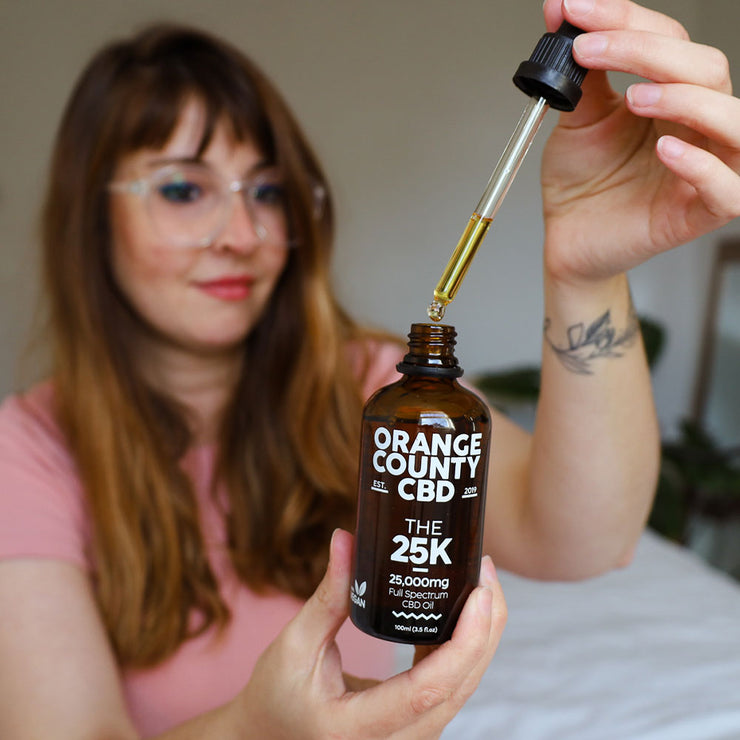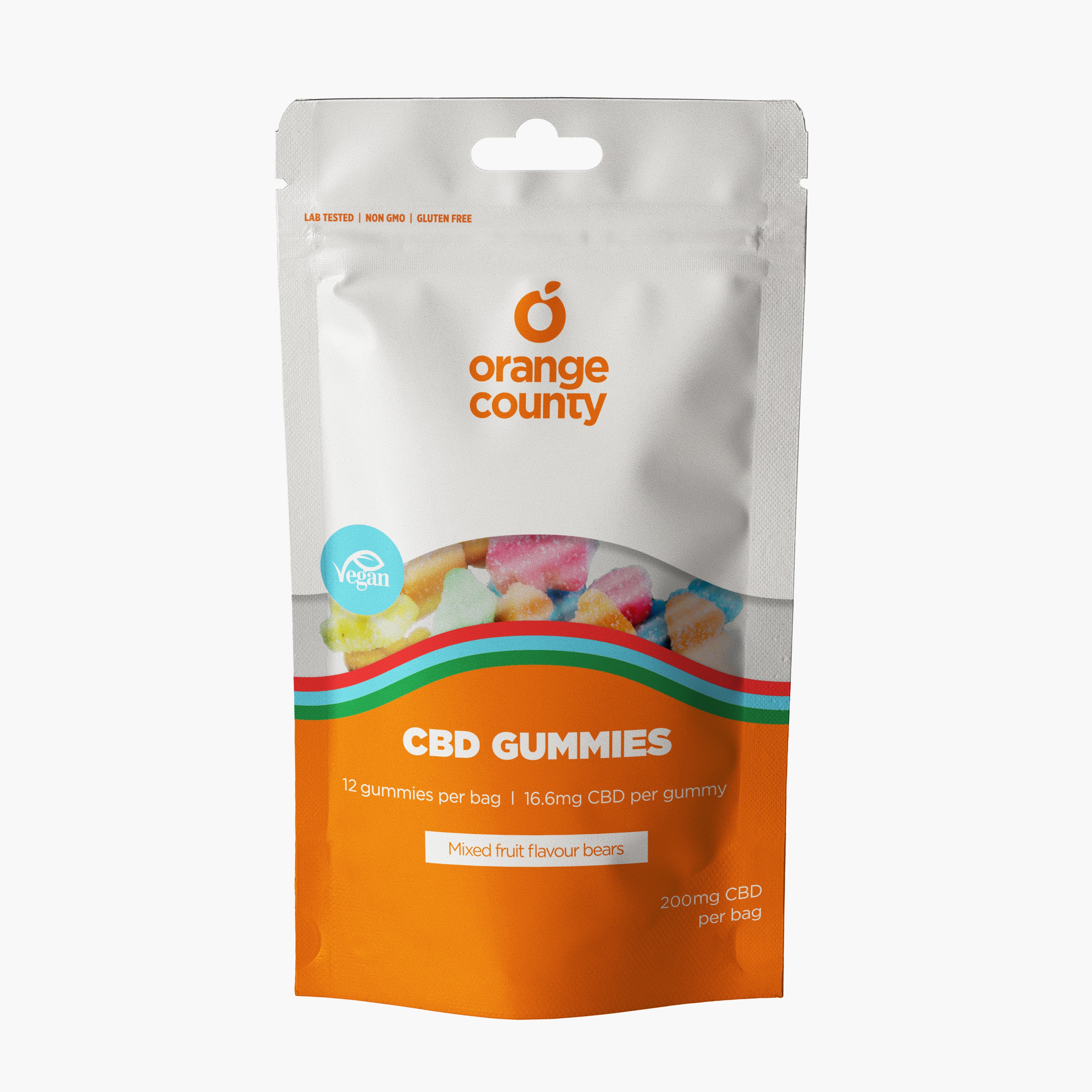How Long Does CBD Stay In Your System?


CBD can stay in your system for anywhere between 1 to 25 days, depending on factors like dosage, frequency of use, metabolism, and method of consumption. [1]
While CBD may remain in your body for days or even weeks, this doesn’t mean you’ll feel its effects for that long. The noticeable effects of CBD usually last only a few hours after use.
Table of Contents:[hide]
What factors affect how long CBD stays in your system?
Several factors influence how long CBD stays in the body. These vary from person to person, but the key considerations include:
Frequency of Use
CBD can build up in the body with regular use. Daily users may retain CBD for longer periods compared to occasional users, as repeated doses lead to a gradual accumulation in fat tissues.
Body Type
Factors like body mass index (BMI), metabolism speed [5], and body fat percentage can affect how long CBD stays in your system. CBD is lipophilic, meaning it binds to fat cells, so people with higher body fat may retain CBD longer.
Diet
Whether you take CBD on an empty or full stomach can influence absorption and duration. A high-fat meal can increase CBD bioavailability, potentially slowing its release and extending its presence in your system.
Delivery Method
The way you take CBD has a big impact on how quickly it’s absorbed and how long it stays in your system. Some methods work faster but may leave the body sooner, while others take longer to kick in but can stay active for longer periods.
Dosage
Higher doses of CBD tend to stay in the system for longer. For example, the plasma study found that while low doses like 15 mg cleared within a week, larger doses such as 300 mg or 1500 mg remained detectable for 13 to 25 days [1].
Common ways to take CBD include:
-
CBD oils — usually placed under the tongue for faster absorption [4]
-
CBD capsules — swallowed like a supplement, slower to absorb
-
CBD vapes — the quickest way to feel effects, but shorter lasting
-
CBD edibles — like gummies or sweets, slower to take effect but longer lasting in the body
 Orange County broad-spectrum CBD oil is completely THC-free, giving you all the benefits of CBD with none of the worry.
Orange County broad-spectrum CBD oil is completely THC-free, giving you all the benefits of CBD with none of the worry.
How long does it take to work?
CBD’s onset time depends on how you consume it. Oils taken under the tongue (sublingually) generally work fastest - often within 15 to 60 minutes. Edibles or capsules may take longer, around 1 to 2 hours, as they must pass through the digestive system.
Does it work right away?
CBD isn’t usually an instant fix. While some people feel effects quickly, it can often take a few days or even weeks of regular use to notice consistent benefits.
Does it show on a drug test?
CBD is legal in the UK, provided it contains less than 1mg of THC per product. Standard drug tests don’t screen for CBD, but they do look for THC - the compound in cannabis responsible for causing a “high.” [3]
Most broad-spectrum CBD products are THC-free, making them the safest choice if you’re concerned about drug testing. Full-spectrum CBD can contain trace amounts of THC (within legal limits), which in rare cases and with frequent use, could increase the risk of a positive test.

How Long Can CBD Be Detected in Blood, Urine and Saliva?
Detection times vary by testing method:
|
🧪Test Type |
⏳Detection Window |
|
🩸Blood |
Several hours to a few days; up to 25 days after high doses [1] |
|
💛Urine |
1–5 days (longer with regular use) |
|
👅 Saliva |
Usually under 72 hours (longer if THC is present) |
Detection doesn’t mean impairment. Most tests look for THC, not CBD, but traces can linger in the body for a while after use.
Choosing lab-tested, low-THC products helps reduce the risk of any test complications.
CBD You Can Trust — No Surprises, No Stress
If you’re using CBD and worried about drug tests, quality matters more than ever. Trace amounts of THC in poorly made products can lead to unwanted surprises — especially with full-spectrum extracts from unreliable sources.
Whether you're looking for relaxation, pain relief, or just a sweet treat, our Broad-Spectrum CBD Grab Bag is the perfect place to start — and it’s only £10.
Research
[1] – Study: How long does a single oral dose of cannabidiol persist in plasma?
Source: https://analyticalsciencejournals.onlinelibrary.wiley.com/doi/full/10.1002/dta.3419
Summary: This study found that cannabidiol (CBD) can remain detectable in blood plasma for several days to weeks after a single oral dose, depending on the amount taken. While low doses (15 mg) cleared within a week, higher doses like 300 mg and 1500 mg were often still present after 13 and 25 days, respectively. The likelihood of detecting CBD increased with dose size and participant age. These findings highlight the need for longer washout periods in clinical trials using CBD, especially when higher doses or repeated use are involved, to avoid potential carryover effects.
[2] – Study: Cannabidiol (CBD) in Clinical Care
Source: https://www.ncbi.nlm.nih.gov/books/NBK556048/
Summary: Half-life of cannabidiol (CBD) can vary widely depending on how it is consumed and the individual using it. After a single dose, CBD’s half-life ranges from 1 hour to 5 days. Specifically, the half-life is between 1.4 and 10.9 hours when taken as an oromucosal spray, around 31 hours when smoked, and between 2 and 5 days with chronic oral use. Factors such as dosage, frequency of use, method of consumption, and individual metabolism all influence how long CBD stays in the body.
[3] – Page: Labeling Accuracy of Cannabidiol Extracts Sold Online
Source: https://jamanetwork.com/journals/jama/fullarticle/2661569
Summary: This study found that many CBD products sold online contained inaccurate labelling, with significant variation in actual CBD content compared to what was advertised. Importantly, 21% of the products tested were found to contain detectable levels of THC, despite not listing it on the label. In some cases, THC levels were high enough to potentially cause intoxication, particularly in sensitive users or children. These findings highlight the importance of buying CBD from reputable brands that provide third-party lab testing to verify both CBD and THC content, ensuring product safety and compliance with legal limits.
[4] – Study: Advances in Nanoparticulate Drug Delivery Approaches for Sublingual and Buccal Administration
Source: PMC6848967 – NCBI
Summary: This review discusses the benefits of sublingual and buccal drug delivery routes for fast systemic absorption, bypassing first-pass metabolism. It explains how nanoparticulate formulations can enhance retention, permeability, and absorption in these mucosal tissues. The sublingual route, in particular, supports rapid onset of action and is effective for drugs with low oral bioavailability. Nanoparticles offer controlled release, improved solubility, and protection from enzymatic degradation — promising features for enhancing sublingual CBD oil delivery.
[5] – Study: Therapeutic Efficacy of Cannabidiol (CBD): A Review of the Evidence from Clinical Trials and Human Laboratory Studies
Source: https://pmc.ncbi.nlm.nih.gov/articles/PMC7880228
Summary: This review highlights that CBD interacts with the body’s metabolism primarily through the liver. CBD is processed by enzymes in the cytochrome P450 family, which are responsible for breaking down many common medications. As a result, CBD can slow down or alter the metabolism of other drugs, increasing their concentration in the bloodstream. This interaction is especially important for people taking medications like blood thinners, epilepsy treatments, or antidepressants.
The study also notes that individual factors - such as CBD dosage, frequency of use, and the user’s own metabolism — affect how long CBD stays in the system. Regular use or higher doses can lead to CBD building up in fat tissues, potentially slowing its clearance from the body.
Sustainability

